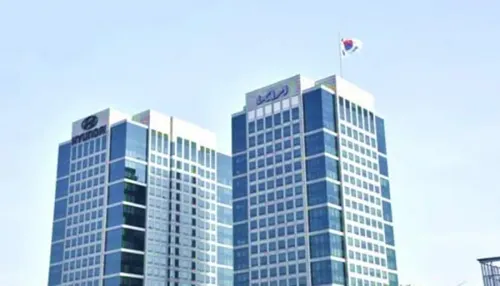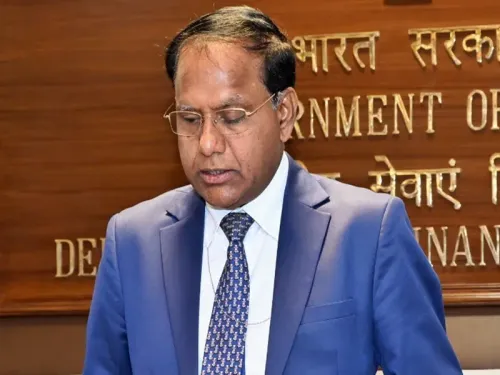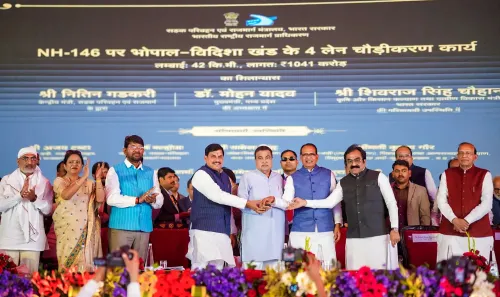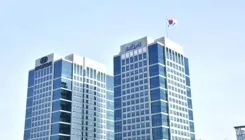What Did Seoul's Industry Minister Discuss with His UAE Counterpart?
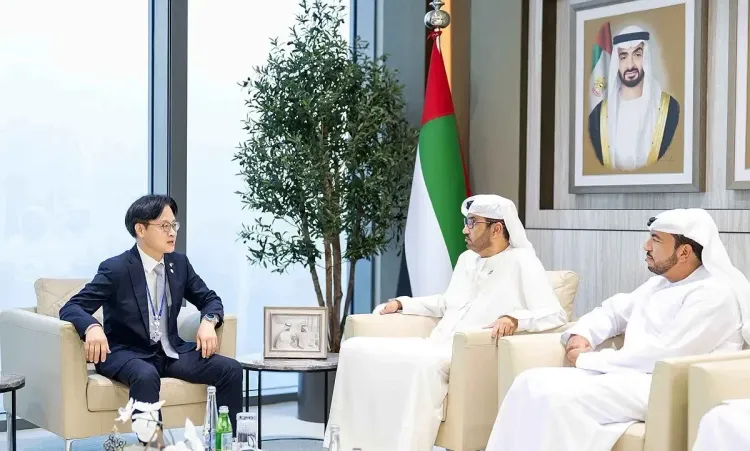
Synopsis
Key Takeaways
- South Korea and UAE are strengthening ties in AI and energy.
- Collaboration inspired by the Barakah nuclear power plant model.
- Discussion on advanced manufacturing and energy infrastructure.
- Need for South Korea to reform business policies for global competitiveness.
- Urgent investments required to keep pace in the AI sector.
Seoul, Nov 20 (NationPress) The South Korean Industry Minister Kim Jung-kwan held discussions this week with his counterpart from the United Arab Emirates (UAE) regarding collaboration in the artificial intelligence (AI) and energy sectors, as reported by officials in Seoul on Thursday.
The meeting took place in Abu Dhabi on Tuesday, where Kim engaged with UAE Industry Minister Sultan Ahmed Al Jaber to explore opportunities for exchange in these industries. This dialogue followed a recent summit where the leaders of both nations committed to enhancing economic collaboration across multiple sectors, as outlined by the Ministry of Trade, Industry and Resources.
Earlier this week, South Korean President Lee Jae Myung and UAE President Mohamed bin Zayed Al Nahyan convened in Abu Dhabi to agree on a joint initiative aimed at developing a cooperation model for global market entry, inspired by the Barakah nuclear power plant.
The Barakah facility was constructed by the Korea Electric Power Corp., representing Korea's inaugural overseas nuclear energy initiative.
Furthermore, Seoul has expressed its intent to participate in the UAE's Stargate project, which focuses on AI and energy infrastructure.
During their meeting, the two ministers also exchanged insights on enhancing bilateral cooperation in advanced manufacturing, petroleum, liquefied natural gas, and batteries.
In related news, SK Group Chairman Chey Tae-won emphasized the necessity for South Korea to reform its business policies to facilitate large-scale investments in the AI sector. He highlighted the urgency for swift and strategic investments to compete effectively in the global AI landscape.
Chey remarked, "The competition hinges not only on scale but also on speed," asserting that economic security will depend on leadership in the AI field. His comments come amid calls from the business community for the government to relax financial regulations to meet the escalating demand for funding in advanced industries.
Chey warned that without proactive measures, South Korea's economy could experience negative growth starting in 2030, stating, "Failure to act soon will result in significant costs and sacrifices once the economy declines."


